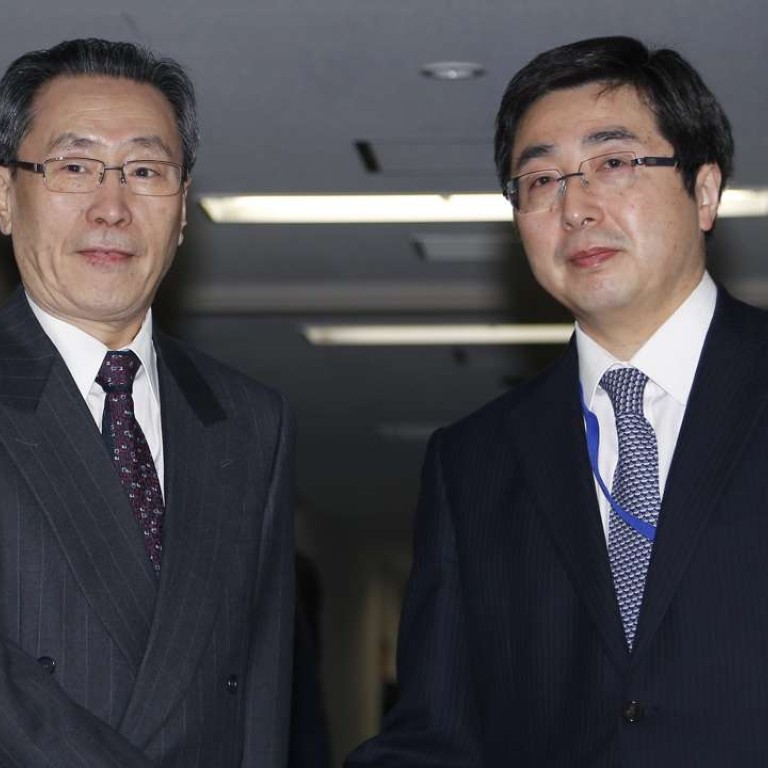
China to enforce UN sanctions on North Korea over its missile programme by ban on some imports and exports
China’s Commerce Ministry on Tuesday banned imports of North Korean gold and rare earths and exports to the country of jet fuel and other oil products used to make rocket fuel, a move in line with new UN sanctions on Pyongyang.
The announcement came as China’s nuclear envoy agreed with his Japanese counterpart in Tokyo to enforce UN sanctions on North Korea over its missile programme.
The Security Council unanimously passed a resolution in early March expanding UN sanctions aimed at starving North Korea of funds for its nuclear and ballistic missile programmes after Pyongyang conducted a fourth nuclear test in January and launched a long-range rocket in February.
The ministry said it had banned imports of iron and iron ore from North Korea, except for civilian use.
The ministry said it would also ban coal shipments from North Korea, although it made exemptions consistent with sanctions, including coal intended for “the people’s well-being” and not connected to nuclear or missile programmes.
An exception was also made for coal originating in third countries and supplied via North Korea’s port of Rason.
The mining sector is a key part of North Korea’s economy, which is already largely cut off from the rest of the world. Experts believe revenue from the sector helps underwrite North Korea’s military expenditures.
North Korea delivered around 20 million tonnes of coal to China last year, up 27 per cent on the year before, overtaking Russia and Mongolia to become China’s third biggest supplier, behind Australia and Indonesia.
Export bans on jet and rocket fuel included exemptions for “basic humanitarian needs” in conjunction with inspections, and for civilian passenger jets flying outside of North Korea.
Other restricted minerals include vanadium and titanium, both used in steel alloys.
China for years has been North Korea’s largest trade partner and main source of food, arms, and energy. But a deteriorating bilateral relationship may have caused a drop in trade volume.
Two-way trade between North Korea and China fell 14.7 per cent on year to US$5.43 billion in 2015, reported Yonhap News Agency, quoting data by South Korea’s Korea Trade-Investment Promotion Agency (KOTRA).
Wu Dawei – China’s special representative for Korean affairs who doubles as the chairman of the long-stalled six-party negotiations aimed at ending North Korea’s nuclear weapons programme – on Tuesday said he had exchanged views on the resumption of the talks in his meeting with Kimihiro Ishikane, director general of the Japanese foreign ministry’s Asian and Oceanian Affairs Bureau, in Tokyo.
“The North Korean side should first show positive and constructive behaviour towards denuclearisation,” Japan’s foreign minister Fumio Kishida said on Tuesday morning ahead of Ishikane’s talks with Wu when asked about the possibility of the resumption of the talks.
Kyodo, Reuters
Additional reporting by Catherine Wong

